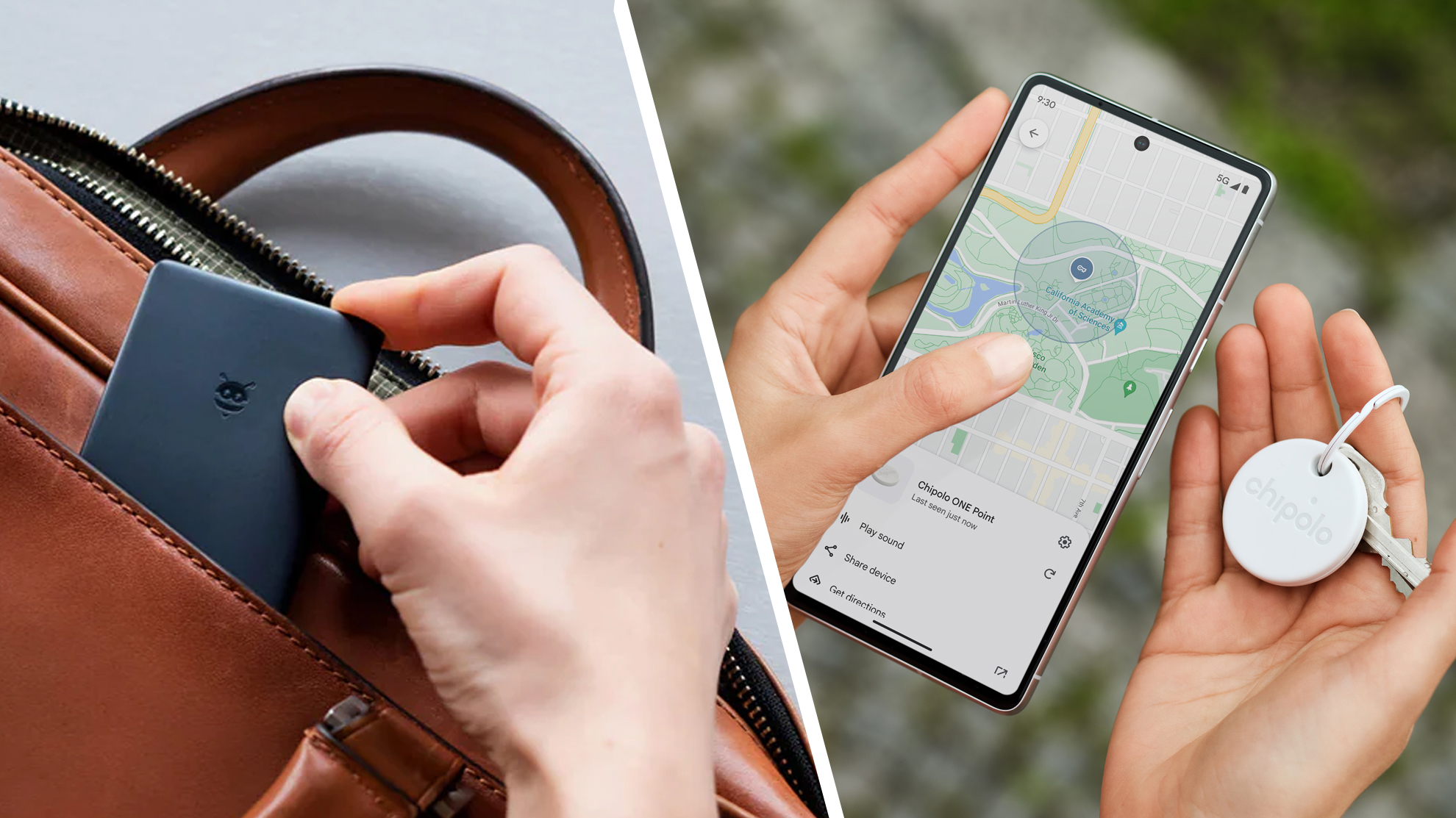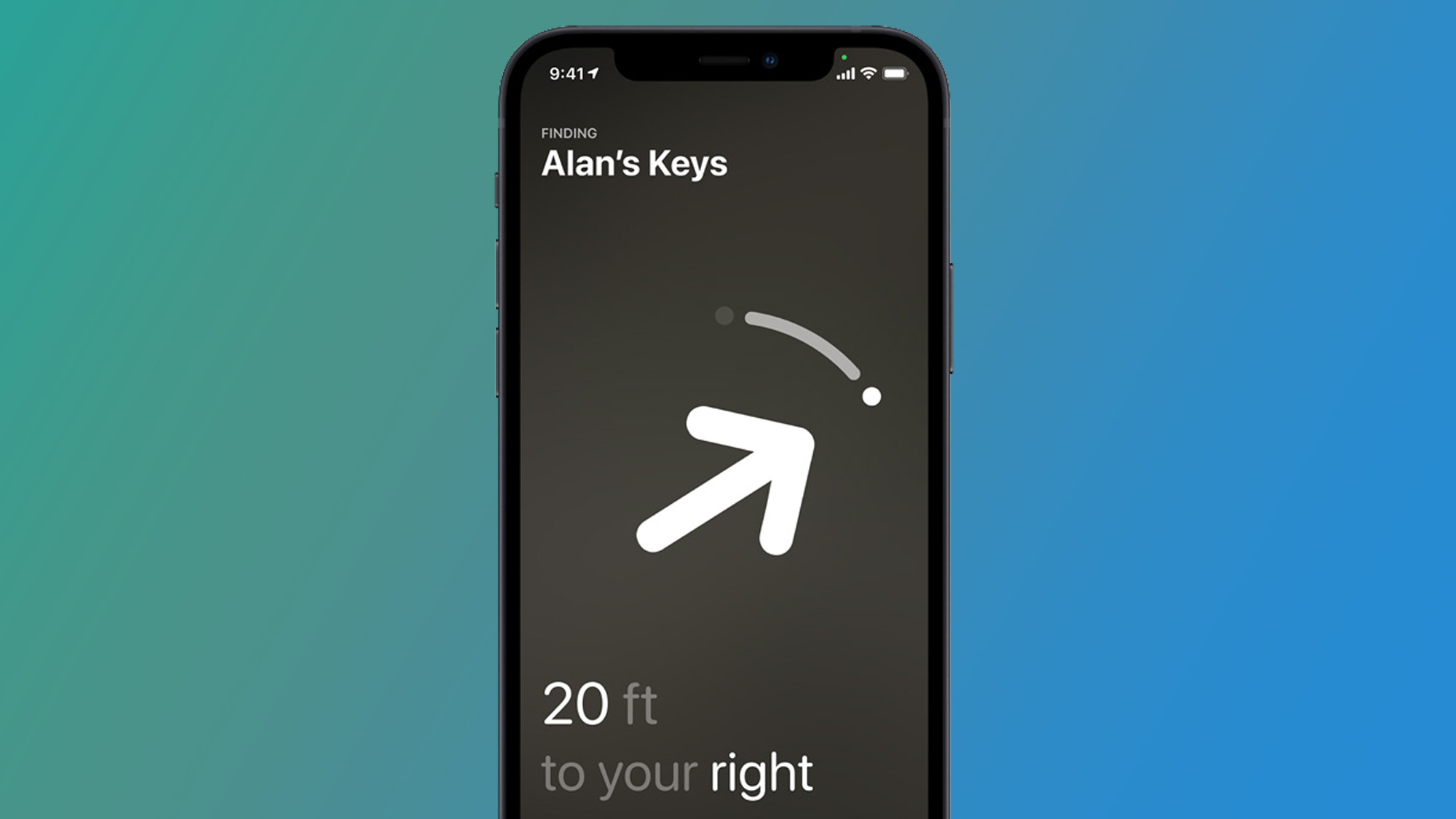Android’s Find My Device trackers are missing one big AirTags feature, but that could soon change
New code suggests Find My Device could get UWB support

Google's upgraded Find My Device network is slowly rolling out globally to help Android fans find their lost belongings. And it seems that Google is already planning to add a key feature that the network lacks compared to Apple's AirTags – support for UWB (ultra-wideband) tech.
UWB is one of the main technologies that powers Apple AirTags' Precision Finding feature (below). That feature gives you directions, down to a few feet, to where your lost keys are. But Google's Find My Device network doesn't currently support the tech – even though many of the best Android phones now support ultra-wideband.
While that oversight means that the first wave of Find My Device trackers lacks the feature, Google appears to have plans to fill the gap. As spotted by Android Authority, some code references in the latest version of the Find My Device app suggest that Google is working on adding UWB to its new network.
That doesn't necessarily mean that Google is planning to bring the feature to Find My Device soon, but it is a promising sign. And it might not be the only new feature in the pipeline for the network – another code reference points to AR (augmented reality) features via the ARCore software development kit (SDK).
In theory, that could tie in nicely with the UWB support, with a camera UI visually showing you how to track down your lost valuables. That would be a very Google integration with echoes of Google Lens, but for now, its Find My Device network lags behind its Apple rival in one small but useful area.
A nudge in the right direction

The lack of UWB support on Google's Find My Device network certainly isn't a deal-breaker for the early trackers that are available now from the likes of Chipolo and Pebblebee.
Like Apple's Find My network, Google's new network anonymously leverages millions of phones worldwide to help you locate lost items. You can attach the trackers, which come in tag and card form, to valuables and tap to 'play sounds' in the app to trigger a sound or get the tracker to emit an LED flash.
Sign up for breaking news, reviews, opinion, top tech deals, and more.
Both things help compensate for the lack of a visual Precision Finding feature like the one you get with AirTags. But those visual cues can still be very handy if you can't quite tell where the sound is coming from, and Apple's integration also gives you increasingly powerful vibrations alongside the UWB-powered directions.
Then again, UWB is only really helpful at very short range, so it only really becomes a benefit when you're in the same room as your lost item. So while it's certainly a nice-to-have that will hopefully come to the Find My Device, Google's rebooted network and the new trackers that support it are still a big upgrade from what was available before on Android.
You might also like

Mark is TechRadar's Senior news editor. Having worked in tech journalism for a ludicrous 17 years, Mark is now attempting to break the world record for the number of camera bags hoarded by one person. He was previously Cameras Editor at both TechRadar and Trusted Reviews, Acting editor on Stuff.tv, as well as Features editor and Reviews editor on Stuff magazine. As a freelancer, he's contributed to titles including The Sunday Times, FourFourTwo and Arena. And in a former life, he also won The Daily Telegraph's Young Sportswriter of the Year. But that was before he discovered the strange joys of getting up at 4am for a photo shoot in London's Square Mile.